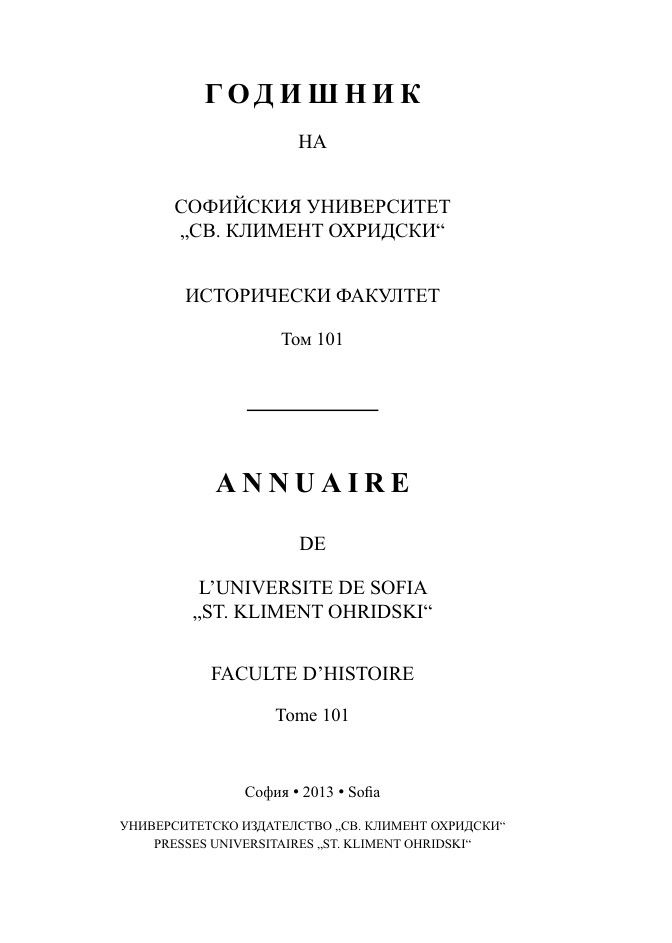Предизвикателствата на опозиционния статус. Прогресивнолибералната партия (1903–1911)
The Challenges of Oppositional Status. The Progressive Liberal Party (1903–1911)
Author(s): Svetoslav ZhivkovSubject(s): History, Political history, Recent History (1900 till today), Pre-WW I & WW I (1900 -1919)
Published by: Софийски университет »Св. Климент Охридски«
Keywords: Progressive-liberal party; People's party
Summary/Abstract: In May 1903 the Bulgarian prime minister Stoyan Danev gave his resignation and the Progressive Liberal Party (PLP) handed over the power. In the next eight years the “tsankovists” were in opposition to the governments of the People Liberal Party (1903–1908) and the Democratic Party (1908–1911). The fall from power reflected unfavourably on the party organization of PLP. Many fellows abandoned the party. The party activity declined. Some revival came in 1905. The second congress was held in 1907. The PLP participated in the general parliamentary elections in 1903 and 1908, but won only six (resp. two) seats in the National Assembly. Successful organizational reforms was made in 1908, when the party statutes were changed. In 1909–1910 the PLP consolidated and won another seat at the partial elections (1909). The PLP held aggressive behavior to the governments of the People’s Liberal Party. The progressive liberals attacked their foreign policy, legislation, repressions, foreign loans. The attitude of the PLP to the government of the Democratic Party was more moderate. The tsankovists criticized the measures of the cabinet at diplomatic negotiations aiming recognition of the Bulgarian independence. In this period (1903–1911) PLP declared that it stands out of consolidation of the parties in Bulgaria. Progressive liberals joined in oppositional coalitions like “The United Opposition” (1903) and “The Patriotic Bloc” (1907). The PLP kept close relations with the People’s Party. Both parties had similar programs to the foreign policy – the ultra-russsophilism. At March 1911 the PLP returned to power. Tsar Ferdinand appointed new cabinet with members from the Progressive Liberal Party and People’s Party.
Journal: Годишник на Софийския университет „Св. Климент Охридски“ – Исторически факултет
- Issue Year: 101/2013
- Issue No: 1
- Page Range: 171-242
- Page Count: 72
- Language: Bulgarian

